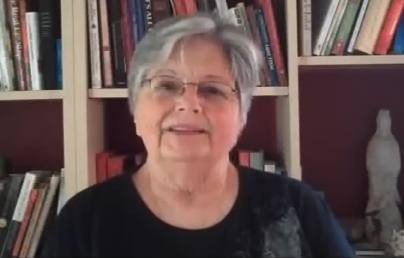Freelancers often think about teaming up with colleagues or other businesses. When they do, these solopreneurs may think their choice is to find someone to join in a formal partnership or to continue on their own without the benefits and problems formal partnership can bring.
But partnership doesn’t have to be an either/or proposition. Said another way, a solopreneur partnership can take many forms other than formally splitting your business with someone else.
Take for example, Rebecca Norton Cummings, a yoga teacher in Bonita, California. Asked if she would consider taking on a partner, perhaps to help grow her business, she says, “I’m open to it at least in theory. But I’m used to working alone, and I like that.”
And then she adds, “I do love partnering with yoga studios.”
Trapped in my own either/or thinking, I ask her what she means.
It turns out there’s a whole other approach to partnering I hadn’t considered.
Solopreneur partnership: Joining forces, one hour at a time
Cummings partners with yoga studios to offer her classes in their facility, making use of their space. In her case it’s the best of both worlds. It’s a solopreneur partnership. She doesn’t have to own a studio and be responsible for getting a business license, running an office or finding a plumber for overflowing toilets.
Instead she concentrates on what she does best, arriving ready to conduct private sessions or classes. When that is over, like her students, she thanks everyone and leaves.
The agreement with the studios is that they take a percentage of the receipts she collects while teaching there. The percentage is negotiated and based in part on how much she’s charging.
It’s clear in each case that she’s not renting space. She and the studio partner with clearly defined agreements and guidelines. Both parties gain. Cummings gets the use of space at a particular time and date to teach. The studio affiliates itself with a well-known yoga teacher. Cummings is able to attract clients from the studio’s membership. In turn, the studio gets access to new class members, at least some of whom officially join the studio. The marketing is often done jointly.
A philosophical fit
Cummings describes her success with this kind of solopreneur partnership as the result of the high standards she sets for the studios she chooses to work with. Obviously, the way the studio looks and feels is important.
But it goes beyond that. She wants to make sure the business she’s bringing her classes match her values. Most of her clients are women, and many people seek out her classes because she’s sensitive to the body issues many women have.
She also creates special classes for women in 12-step recovery. The studio must be aware of and offer support to women in these areas.
Finally, her approach to her work is frankly spiritual. She’s a practicing Buddhist and works to bring a sense of calm acceptance to each class.
So she feels strongly that not just any yoga studio will mesh with her philosophy. The ones she partners with often have a spiritual approach to their business, and bringing on a highly trained and skilled teacher adds to their reputation and offerings.
Working her way into the business
Of course, Cummings didn’t start out with a fully realized yoga instruction business. In fact, she stumbled into the profession. “I took so many yoga classes while I was working on my psychology degree,” she says, “that I discovered I’d actually earned a certificate which entitled me to begin teaching.”
Her career actually started by staffing the front desk of a yoga studio. After they hired her to fill in as a teacher, she began pursuing more training and other opportunities to teach.
She even was sent to Cambodia to teach yoga. “It was in an ex-pat community,” she says. “So most of my students were Americans, but still — I was thrilled.”
Cummings has been teaching yoga for about seven years and has avoided most of the lean times experienced by many body workers. Discovering she could actually partner with studios rather than scrambling to rent space or open her own has been a key to her success.
“Because I spent time as an employee for studios, I knew what worked and what didn’t,” she says. “That helped me when I approached a studio and proposed a partnership.”
Asked what’s next, she smiles. “My husband and I just moved into a new place,” she says, “and I think I have space up stairs to at least teach a couple of people. It will be an interesting experiment.”

Anne Wayman has been writing as a freelancer for longer than she cares to admit. In addition to interviews and general content writing she also ghostwrites books. Her professional site is www.annewayman.com and she blogs about writing at www.aboutfreelancewriting.com.










